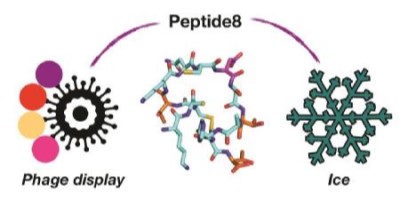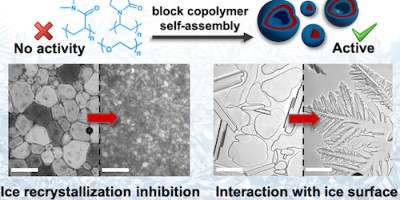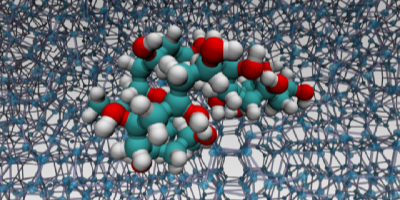News
BonLab designs autonomous electricity-free "icy road" sign

We set out to develop a prototype for “icy road” warning signs which was able to operate autonomously without the use of electricity...
Chemicals, cocktails and creativity, from molecules to masterpieces

Down a Pint of Science as Chemistry's Alex Baker and co-stars discuss nature's salubrious substances. See what you missed.
Discovery of minimalistic cyclic ice binding peptides

The Gibson and Sosso groups have collaborated with partners in Switzerland to use phage display to discover small antifreeze peptides. Read more
Exploring Energy Storage for a Greener Future

In November 2018, the Monash Warwick Alliance funded Chemists to develop and identify cost-effective, highly active, selective and stable catalysts. Check their progress...
Polymer Nanoparticles to Control Ice Growth

The GibsonGroup, in collaboration with Dr Tom Whale, have published in the Journal of the American Chemical Society, showing that polymer nanoparticles can inhibit ice growth. Read more...
Funding granted for cleaner, greener chemicals

Researchers at the Universities of Warwick and Nottingham have received EPSRC funding to launch a ground-breaking research programme for global specialist chemical manufacturer, Lubrizol.
The missing colours of Chemistry explored

Ingrained prejudices and a lack of action addressing discrimination are some of the main reasons why academic chemistry is overwhelmingly white...
Warwick Spin-Out, CryoLogyx, partners with investors

The University of Warwick spin-out company, CryoLogyx, has received a further investment from Oxford Technology Management and private investors, alongside £300k from InnovateUK.
Solving the puzzle of polymer-ice binding for cryopreservation

When biological material is frozen, cryoprotectants are used to prevent ice damage. How do newly emerging polymeric cryoprotectants control ice formation and growth during freezing?
International Women's Day 2021 - 8th March

Today we are choosing to seek out and celebrate women's achievements at Warwick Chemistry.
Soil bacteria hormone discovery provides fertile ground for new antibiotics
The discovery of how hormone-like molecules turn on antibiotic production in soil bacteria could unlock the untapped opportunities for medicines that are under our very feet.
An international team of scientists working in the Department of Chemistry, the School of Life Sciences and the Warwick Integrative Synthetic Biology Centre at the University of Warwick, UK, and Monash University, Australia, have determined the molecular basis of a biological mechanism that could enable more efficient and cost-effective production of existing antibiotics, and also allow scientists to uncover new antibiotics in soil bacteria.
It is detailed in a new study published in the journal Nature.

